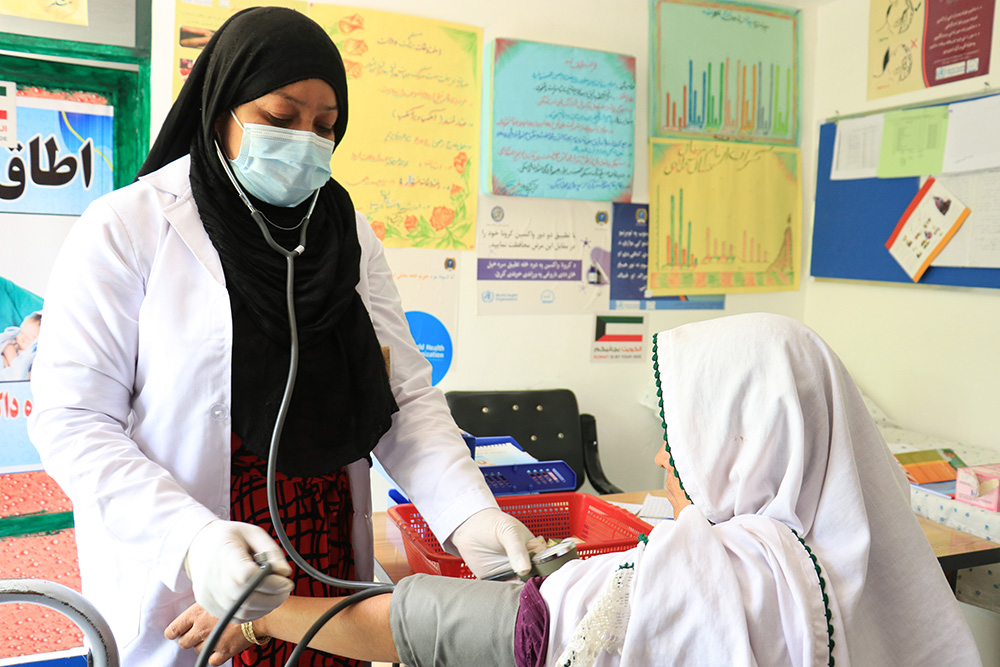
16 May 2024 – Hypertension is a silent yet deadly public health problem. Today, on World Hypertension Day 2024, we remind all adults to get your blood pressure measured accurately and control it to live longer. Early detection and careful management of hypertension are vital.
Hypertension is a leading risk factor for premature death and disability – in the WHO Eastern Mediterranean Region especially. Untreated hypertension can lead to serious medical complications such as stroke, heart attack, heart failure, kidney damage, and other debilitating health issues.
In 2019, hypertension was estimated to affect 38% of adults aged 30–79 years in the Region – more than 104 million people. Shockingly, more than half of them (51%) are unaware of their status, and over 60% of the total are not receiving treatment. Just 16% of the total number have their condition under control.
Established risk factors include unhealthy diet (high salt and low fruit and vegetable intake), physical inactivity, tobacco and alcohol use, and obesity. Emerging risk factors include pollution (air, water, noise, light), urbanization and loss of green space.
In humanitarian settings in the Region, such as conflict-affected contexts or areas affected by man-made and natural disasters including climate-related disasters, the burden of hypertension is even worse. This is the result of limited resources, heightened stress levels and inadequate access to health care in such settings.
Urgent action is needed to improve diagnosis, treatment, and control rates to combat the burden of hypertension in the Eastern Mediterranean Region. It’s vital to empower people to accurately measure their blood pressure (or have it measured for them), take control of their health, and embrace lifestyle changes.
Currently, the significant gaps in hypertension management and control efforts in the Region hinder progress towards Sustainable Development Goal target 3.4 – to reduce premature mortality due to noncommunicable diseases.
Hypertension, and its complications, worsens inequalities and imposes economic hardships on patients and their families, as well as on health systems and national economic and development agendas.
A multifaceted approach is needed to tackle the issue of hypertension. Global actions such as the WHO package of essential noncommunicable disease interventions for primary health care, the HEARTS technical package and the push for universal health coverage aim to improve control of hypertension. Individualized approaches remain vital, especially in low- and middle-income countries. But population-based approaches that promote health throughout the life course are crucial too. These can create health-promoting environments and encourage healthier living from before birth to old age.
To improve prevention and treatment, countries should establish national governance mechanisms to coordinate and monitor efforts to address hypertension; develop comprehensive programmes to address risk factors; ensure adequate health workers and financing; and strengthen information systems for data collection and analysis.
On World Hypertension Day 2024, let us prioritize our health and well-being. Join us in this vital mission to create a healthier, happier, and hypertension-free world for generations to come.
Key resources
Online training on the HEARTS technical package
Global report on hypertension: the race against a silent killer
WHO Guideline for the Pharmacological Treatment of Hypertension in Adults
Addressing noncommunicable diseases in emergencies: a regional framework for action
Framework for action on diabetes prevention and control in the WHO Eastern Mediterranean Region


